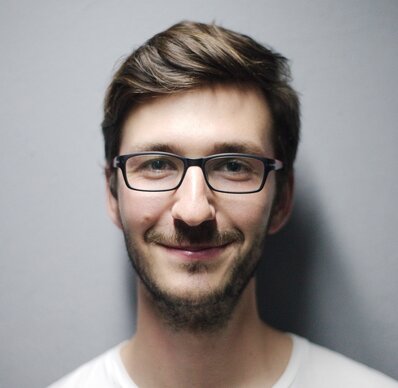This is part of a series of blog posts wherein members of the 6med team attach and comment on their own medicine personal statements. Duranka (instructor at UCAT Crash Course) applied to Oxford, Imperial, KCL and Barts, and received offers from Imperial, KCL and Barts.
Please be aware that these examples are meant purely for the sake of inspiration, and should absolutely NOT be used as a model around which to base your own personal statement. UCAS have a rather strict system that detects plagiarism.
Personal Statement Inspiration & Examples Articles
Medicine Personal Statement Analysis
Discovery in its many guises has always been important to me and has strongly driven my actions. From reading “Sherlock Holmes” through to the history of cancer treatment in Siddhartha Mukherjee’s “Emperor of all Maladies”, I have become inspired to do some discovering of my own. It is therefore my firm belief that studying medicine would be extremely fulfilling for me, as its intrinsic dynamism will challenge the boundaries of my learning, application and empathy so I can help those whom sickness has made most vulnerable to the best of my ability.
“It’s useful to start your personal statement with your primary motivation for doing medicine. It allows you to introduce your character in a way that can be developed through the various other things you mention later on. The name-dropping of famous and well-regarded books is good too (so long as you’re prepared to be asked about them).”
My interest in the subject has developed largely in the last four years as I studied English, Biology and Chemistry. With English, analysing poems and novels has helped me understand how abstract ideas are created and come together. This helped when I critiqued “ADHD at your Fingertips”, an advice booklet for teenagers with the condition, prior to its national publication. It has also allowed me to add more depth to my personal work, fulfilling my childhood love of creative writing; as of now I am currently 40,000 words into my first novel. Biology, Chemistry and my reading Frank Ryan’s “Virolution” have also refined my understanding of the fundamental construction of the body and disease, even down to the atomic level for Polio. Having enjoyed these major constituents of the human engine, I thought it would only be logical to continue learning about its malfunctions in greater depth by reading medicine at University.
“As it happens, that novel was eventually consigned to the Recycling Bin, but the point of this paragraph is to simply relate the subjects you do at A-Level to your broader thinking. Though a lot of medicine depends on memorising things, the endgame is being able to practically apply what you’ve learned. Showing you’re already doing this, relating your experiences in A-Level subjects to specific hobbies and your extra reading, makes you look way more mature than the average applicant.”
Need some extra guidance with your Personal Statement preparations?
Signing up to the Personal Statement Bundle means you’ll be guided by expert Medics who will help you write the perfect Personal Statement and provide unlimited redraft submissions.
Want to learn how to Write the Perfect Personal Statement? This bundle is the one for you…


In addition, volunteering for two weeks at a special school and at a centre for disabled adults weekly for a year has helped me see how handicapped people could lead normal lives, thanks in no small part to their dedicated support staff. Also, as a St. John Ambulance cadet of three years, I have had a basic introduction to frontline treatment from my community duties. I believe the aim of medicine is to raise people, if possible, to a state of both physical and mental wellbeing; participating in teaching and treating people has encouraged me to believe that, as a doctor, I could fulfil my desire to do this on a wider scale.
“You don’t need to mention specific names of places. That’s a waste of time. What’s more important is how long you did each thing. Medicine requires dedication, and the people in charge of applications want to see that quality in you. The second thing to notice is how I show how my experiences furthered my desire to do medicine. A lot of people tend to list the things they did to try and look good. The advice I got while writing my statement was, quite simply, “Please don’t.” You’re selling yourself, not what you did, so always try and relate the ‘what’ to the ‘why’.”
Of equal value to me were the discussions with my friend about the science and ethics of her ongoing struggle with Fowler’s Syndrome, visiting topics from hospital politics to misdiagnosis while also testing my scientific inquisition and understanding of patient experience. This and my volunteering convinced me to take up placements at Southend Hospital to see how the doctors put medicine into practice. Their job both endeared and devastated. Watching clinical trials in Rheumatology research, it was amazing seeing doctors deal with complex new theory and yet still pass it on to their patients’ maximum satisfaction. However, when I met a war veteran with metastatic rectal cancer, I was truly humbled by his calm acceptance of death and gratitude towards the doctors who made it bearable. This was my first sight of the job’s emotionally difficult side, but having met such a character, I’m more determined than ever to study medicine and hopefully make a difference in the lives of people like him.
“Here I just talk about more medically specific experiences. It’s worth saying that each new thing you mention acts as a signpost that the interviewers can pick up on. Most of the time, they’ll just ask you generally about what you did and what you saw, but Oxbridge in particular is very, very anal about the details. If you mention a specific disease, be sure that you’re comfortable answering any questions about it including symptoms, diagnosis (how/when etc) and basic biology.”
My studies have also been deeply enriched by my extracurricular pursuits. Aside from playing tennis weekly for my local club, I have passions for music, drama and public speaking that allow me to express my personality. These, in addition to my civic duties as a prefect, have led me to contribute heavily to my school’s wider life. Having given several assemblies, I have become more confident and at ease in front of strangers, and by directing a production of “Frost/Nixon” as well as a group of amateur Year 8s to House Drama victory, I learned the value of motivation, leadership and teamwork for both others and myself, especially under pressure. After six years, I have also come to lead the school Sinfonia on the First Violin and have sung jazz at several charity events.
“Standard extracurricular activities section. As has been a running theme in this commentary, try and link back to medicine, especially in terms of the buzzword skills you learn. Be sure to list things you actually care about though. You get people who proudly claim to be on the netball team…when they played netball once after school. Don’t be those people.”
I look forward intently to the challenges of studying medicine at University and beyond.
Are you feeling stuck with your Personal Statement?
Signing up to the Personal Statement Bundle means you’ll be guided by expert Medics who will help you write the perfect Personal Statement and provide unlimited redraft submissions.
Want to learn how to Write the Perfect Personal Statement? This bundle is the one for you…




